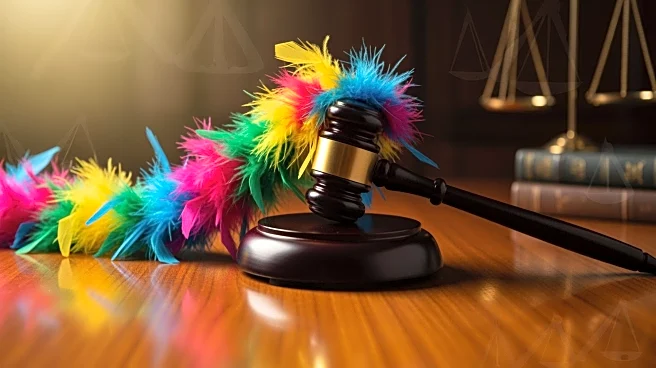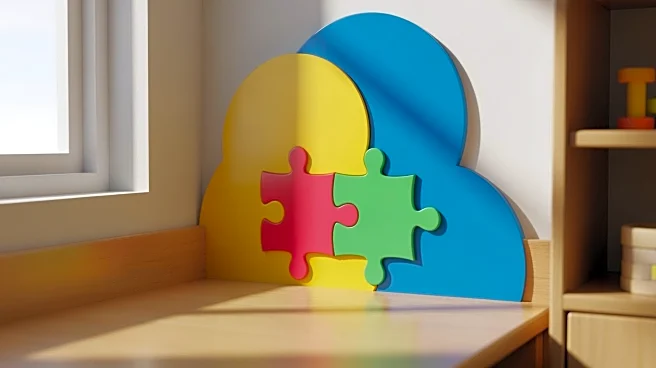What's Happening?
The Fifth Circuit Court of Appeals has overturned a lower court's injunction on a Texas law banning drag shows in the presence of minors, citing the need for a comprehensive constitutional analysis. The law,
known as S.B. 12, prohibits commercial enterprises from hosting sexually-oriented performances attended by individuals under 18. The court's decision mandates a review to determine which applications of the law are unconstitutional. Judge Kurt D. Engelhardt noted that the district court failed to conduct the necessary analysis, leading to the remand for further examination. The case, Woodlands Pride v. Paxton, involves the Texas Attorney General Ken Paxton, who does not enforce certain sections of the law, including those regulating performances by municipalities and counties.
Why It's Important?
This ruling is significant as it addresses the balance between First Amendment rights and the protection of minors. The decision could impact how similar laws are evaluated across the U.S., potentially influencing public policy on artistic expression and free speech. The case highlights ongoing debates about the scope of First Amendment protections, particularly in contexts involving minors. Stakeholders such as the American Civil Liberties Union of Texas and Baker Botts LLP, representing the plaintiffs, argue that the law infringes on free speech rights. The outcome of this case may set precedents for future legislation concerning performances deemed sexually-oriented.
What's Next?
The district court is tasked with conducting a thorough constitutional analysis to determine the validity of the law's applications. This process will involve assessing whether the unconstitutional aspects of the law outweigh the constitutional ones. The decision may prompt reactions from civil rights groups and lawmakers, potentially leading to legislative amendments or further legal challenges. The case's progression will be closely monitored by advocates of free speech and child protection, as it may influence similar legal battles nationwide.
Beyond the Headlines
The case raises deeper questions about the intersection of free speech and child protection laws. It challenges the legal definitions of sexually-oriented performances and their implications for artistic expression. The ruling may influence cultural perceptions of drag performances and their acceptance in mainstream society. Additionally, it underscores the role of judicial interpretation in shaping public policy and societal norms.








